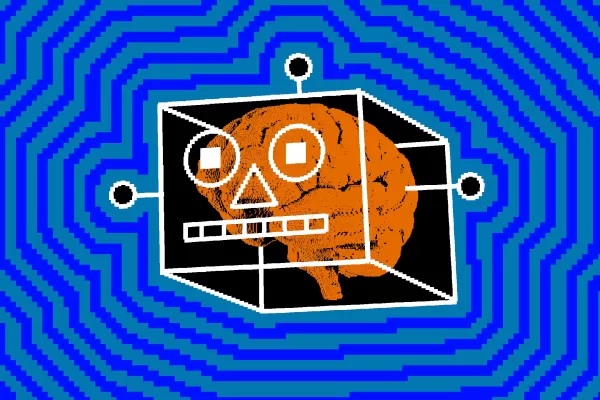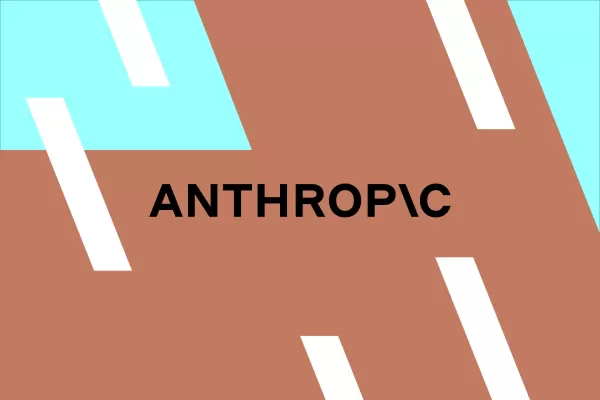Wikipedia is giving AI developers its data to fend off bot scrapers

Wikipedia's New Strategy to Manage AI Data Scraping
Wikipedia, through the Wikimedia Foundation, is taking a proactive step to manage the impact of AI data scraping on its servers. On Wednesday, they announced a collaboration with Kaggle, a platform owned by Google and dedicated to data science and machine learning, to launch a beta dataset. This dataset contains "structured Wikipedia content in English and French," tailored specifically for AI training purposes.
The dataset, now available on Kaggle, has been crafted with AI developers in mind, simplifying the process of accessing machine-readable article data. This includes everything from research summaries and short descriptions to image links, infobox data, and various article sections. Importantly, this data is openly licensed and does not include references or non-textual elements like audio files, ensuring it's optimized for AI use cases like modeling, fine-tuning, and benchmarking.
Wikimedia's approach offers a well-structured JSON format of Wikipedia's content, which they hope will be a more appealing option for AI developers compared to the traditional method of scraping or parsing raw article text. This move is partly in response to the strain that AI bots have been putting on Wikipedia's servers due to their bandwidth consumption.
Already, Wikimedia has established content sharing agreements with giants like Google and the Internet Archive. However, the partnership with Kaggle is expected to make this data more accessible to smaller companies and independent data scientists, broadening the reach and utility of Wikipedia's content.
What Kaggle Brings to the Table
Brenda Flynn, Kaggle's partnerships lead, expressed enthusiasm about hosting Wikimedia's data. "As the place the machine learning community comes for tools and tests, Kaggle is extremely excited to be the host for the Wikimedia Foundation’s data," she stated. Kaggle's role is crucial in keeping this data not just accessible but also relevant and useful for the machine learning community.
This strategic move by Wikipedia not only aims to ease the load on its servers but also fosters a more structured and beneficial relationship with the AI and machine learning communities.
Related article
 US to Sanction Foreign Officials Over Social Media Regulations
US Takes Stand Against Global Digital Content Regulations
The State Department issued a sharp diplomatic rebuke this week targeting European digital governance policies, signaling escalating tensions over control of online platforms. Secretary Marco
US to Sanction Foreign Officials Over Social Media Regulations
US Takes Stand Against Global Digital Content Regulations
The State Department issued a sharp diplomatic rebuke this week targeting European digital governance policies, signaling escalating tensions over control of online platforms. Secretary Marco
 "Dot AI Companion App Announces Closure, Discontinues Personalized Service"
Dot, an AI companion application designed to function as a personal friend and confidant, will cease operations, according to a Friday announcement from its developers. New Computer, the startup behind Dot, stated on its website that the service will
"Dot AI Companion App Announces Closure, Discontinues Personalized Service"
Dot, an AI companion application designed to function as a personal friend and confidant, will cease operations, according to a Friday announcement from its developers. New Computer, the startup behind Dot, stated on its website that the service will
 Anthropic Resolves Legal Case Over AI-Generated Book Piracy
Anthropic has reached a resolution in a significant copyright dispute with US authors, agreeing to a proposed class action settlement that avoids a potentially costly trial. The agreement, filed in court documents this Tuesday, stems from allegations
Comments (2)
0/200
Anthropic Resolves Legal Case Over AI-Generated Book Piracy
Anthropic has reached a resolution in a significant copyright dispute with US authors, agreeing to a proposed class action settlement that avoids a potentially costly trial. The agreement, filed in court documents this Tuesday, stems from allegations
Comments (2)
0/200
![JustinJohnson]() JustinJohnson
JustinJohnson
 August 15, 2025 at 11:00:59 AM EDT
August 15, 2025 at 11:00:59 AM EDT
Wow, Wikipedia teaming up with Kaggle to tackle AI scrapers? Smart move! It's like building a digital fortress to protect their data. Curious how this will impact AI model training in the long run. 🛡️


 0
0
![EricMartin]() EricMartin
EricMartin
 July 30, 2025 at 9:41:20 PM EDT
July 30, 2025 at 9:41:20 PM EDT
Wow, Wikipedia teaming up with Kaggle to tackle AI scraping? That's a smart move! I love how they're turning a problem into an opportunity for data science. Wonder if this will spark new AI innovations or just keep the bots at bay. 🤔


 0
0

Wikipedia's New Strategy to Manage AI Data Scraping
Wikipedia, through the Wikimedia Foundation, is taking a proactive step to manage the impact of AI data scraping on its servers. On Wednesday, they announced a collaboration with Kaggle, a platform owned by Google and dedicated to data science and machine learning, to launch a beta dataset. This dataset contains "structured Wikipedia content in English and French," tailored specifically for AI training purposes.
The dataset, now available on Kaggle, has been crafted with AI developers in mind, simplifying the process of accessing machine-readable article data. This includes everything from research summaries and short descriptions to image links, infobox data, and various article sections. Importantly, this data is openly licensed and does not include references or non-textual elements like audio files, ensuring it's optimized for AI use cases like modeling, fine-tuning, and benchmarking.
Wikimedia's approach offers a well-structured JSON format of Wikipedia's content, which they hope will be a more appealing option for AI developers compared to the traditional method of scraping or parsing raw article text. This move is partly in response to the strain that AI bots have been putting on Wikipedia's servers due to their bandwidth consumption.
Already, Wikimedia has established content sharing agreements with giants like Google and the Internet Archive. However, the partnership with Kaggle is expected to make this data more accessible to smaller companies and independent data scientists, broadening the reach and utility of Wikipedia's content.
What Kaggle Brings to the Table
Brenda Flynn, Kaggle's partnerships lead, expressed enthusiasm about hosting Wikimedia's data. "As the place the machine learning community comes for tools and tests, Kaggle is extremely excited to be the host for the Wikimedia Foundation’s data," she stated. Kaggle's role is crucial in keeping this data not just accessible but also relevant and useful for the machine learning community.
This strategic move by Wikipedia not only aims to ease the load on its servers but also fosters a more structured and beneficial relationship with the AI and machine learning communities.
 US to Sanction Foreign Officials Over Social Media Regulations
US Takes Stand Against Global Digital Content Regulations
The State Department issued a sharp diplomatic rebuke this week targeting European digital governance policies, signaling escalating tensions over control of online platforms. Secretary Marco
US to Sanction Foreign Officials Over Social Media Regulations
US Takes Stand Against Global Digital Content Regulations
The State Department issued a sharp diplomatic rebuke this week targeting European digital governance policies, signaling escalating tensions over control of online platforms. Secretary Marco
 Anthropic Resolves Legal Case Over AI-Generated Book Piracy
Anthropic has reached a resolution in a significant copyright dispute with US authors, agreeing to a proposed class action settlement that avoids a potentially costly trial. The agreement, filed in court documents this Tuesday, stems from allegations
Anthropic Resolves Legal Case Over AI-Generated Book Piracy
Anthropic has reached a resolution in a significant copyright dispute with US authors, agreeing to a proposed class action settlement that avoids a potentially costly trial. The agreement, filed in court documents this Tuesday, stems from allegations
 August 15, 2025 at 11:00:59 AM EDT
August 15, 2025 at 11:00:59 AM EDT
Wow, Wikipedia teaming up with Kaggle to tackle AI scrapers? Smart move! It's like building a digital fortress to protect their data. Curious how this will impact AI model training in the long run. 🛡️


 0
0
 July 30, 2025 at 9:41:20 PM EDT
July 30, 2025 at 9:41:20 PM EDT
Wow, Wikipedia teaming up with Kaggle to tackle AI scraping? That's a smart move! I love how they're turning a problem into an opportunity for data science. Wonder if this will spark new AI innovations or just keep the bots at bay. 🤔


 0
0





























